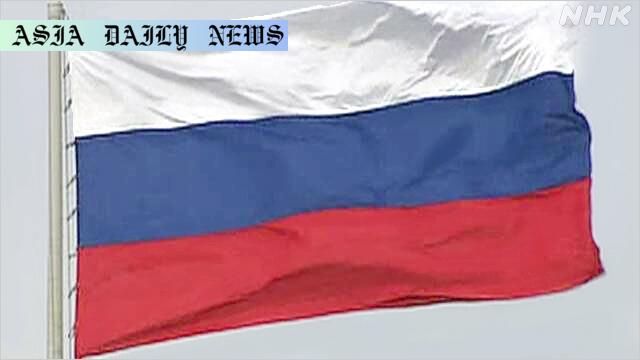Annexation discussions will address Ukraine’s four regions claimed by Russia.
Russia plans to discuss annexed Ukrainian territories during direct talks.
Meeting aims for sustainable peace agreements, grounded on realities.
Ukraine’s willingness to negotiate appears doubtful, per Moscow.

The Focus on Annexation in Russia-Ukraine Talks
Upcoming Russian-Ukrainian talks have been overshadowed by Moscow’s plan to address the contentious issue of annexed territories, a move that has drawn significant international interest. Russian Deputy Foreign Minister Sergey Ryabkov indicated that discussions would center around ‘new Russian territories,’ emphasizing the four Ukrainian regions Moscow claims to have annexed—Donetsk, Luhansk, Zaporizhzhia, and Kherson. This announcement underscores Russia’s attempt to affirm its stance on territorial changes, even as the international community widely regards the annexations as unlawful.
The discussions, proposed to take place in Turkey, aim to achieve a sustainable peace agreement grounded ‘on realities on the ground,’ according to Ryabkov. However, doubts linger over Ukraine’s willingness to work with Russia given the ongoing conflict and the skepticism surrounding Moscow’s sincerity. Western and NATO allies continue to support Kyiv, explicitly rejecting Russia’s claims to the territories. Meanwhile, the planned meeting being categorized as working-level rather than high-level, adds another layer of complexity and perhaps limits expectations for substantial progress.
Context Behind Annexations and Their Global Implications
The annexations of Donetsk, Luhansk, Zaporizhzhia, and Kherson represent some of the most divisive geopolitical moves in recent history. These regions, crucial for their economic and strategic importance, have been at the core of Russia’s invasion reasoning. Claiming the annexations were supported through contentious referendums, Russia has faced accusations of violating international law, with various countries imposing sanctions in response.
For Ukraine, these territories are non-negotiable, with President Volodymyr Zelensky stressing the restoration of territorial integrity as a precondition for peace talks. The gulf between Russia’s territorial ambitions and Ukraine’s demands highlights the substantial challenges to arriving at a meaningful resolution. The international community, including the United Nations, has overwhelmingly rejected the legitimacy of these annexations, adding pressure on Moscow to reconsider its position during negotiations.
Prospects of Success in Russia-Ukraine Dialogue
While any attempt to broker peace is significant, analysts remain skeptical of the upcoming talks’ effectiveness. The absence of high-ranking officials such as President Vladimir Putin signals limited ambitions for this round of negotiations. Instead, the focus appears to be assessing ground-level realities and testing the waters for future, potentially more formal, discussions.
The notion of discussing a sustainable peace agreement is further complicated by mutual distrust. Claims from the Russian side accusing Ukraine of an unwillingness to negotiate, combined with Kyiv’s demand for the complete de-occupation of its terra firma, reveal deep ideological divides. Furthermore, the international response to any agreements could make or break further dialogue, as Russia seeks some semblance of legitimacy for its controversial annexations.
Geopolitical Ramifications of Turkey as a Venue
The choice of Turkey for these crucial talks is a strategic one. Turkey, a NATO member yet maintaining relatively cordial relations with Russia, has positioned itself as a mediator in various facets of the ongoing conflict. Its geographical and political standing offers both parties a neutral ground for dialogue without immediate interference from heavily involved nations.
This, however, does not mean the road ahead will be straightforward. The world watches Turkey’s ability to facilitate genuine discussions and balance its commitments to NATO while hosting adversarial countries. Whether Turkey can yield results that reflect meaningful compromises remains uncertain, but its evolving role in international diplomacy is one to be closely followed.
Commentary
Significance of Addressing Annexation in Peace Talks
The emphasis on addressing the annexed territories in upcoming negotiations serves as a litmus test for the Russia-Ukraine conflict’s resolution trajectory. By bringing these discussions to the table, Russia aims to solidify its grip on the contested areas through diplomatic means. This demonstrates a shift in strategy—from militaristic dominance to gaining international acknowledgment through dialogue. However, this tactic’s success depends on Ukraine’s stance and its allies’ unwavering position on sovereignty.
Ukraine’s Stance and the International Response
For Ukraine, engaging with Russia on issues concerning the annexed regions may appear as a compromise of national sovereignty. Zelensky’s firm insistence on recovering lost territories highlights the complexities involved. Furthermore, the international community remains firmly aligned with Ukraine, creating a united front against any actions favoring territorial concessions to Moscow.
The Mediatory Role of Turkey on the Global Stage
Turkey’s role in hosting this crucial meeting is intriguing, signifying its broader ambitions as a neutral actor in global conflicts. However, Ankara also faces challenges. Balancing its NATO commitments and its relationship with Moscow could position Turkey as a pivotal, albeit scrutinized, player. Ukraine and Russia’s choice of Turkey reaffirms its importance in mitigating crises, yet the extent of Turkish influence on the outcome remains to be seen.
Ultimately, the success of these discussions will hinge on both realism and willingness from both sides to engage constructively. For now, the talks are an incremental step, but they underline the continued challenges in resolving one of the most complex geopolitical conflicts of our time.


